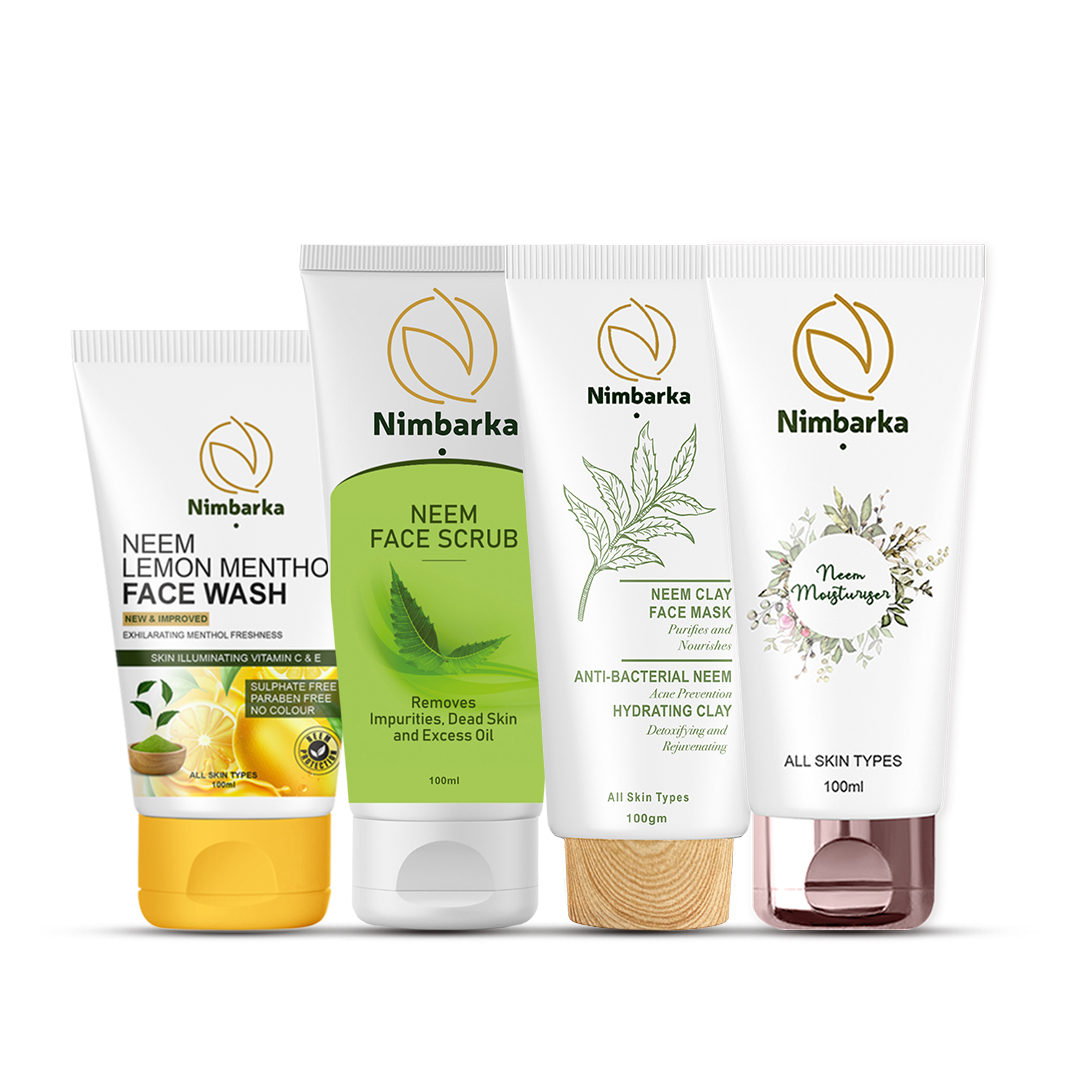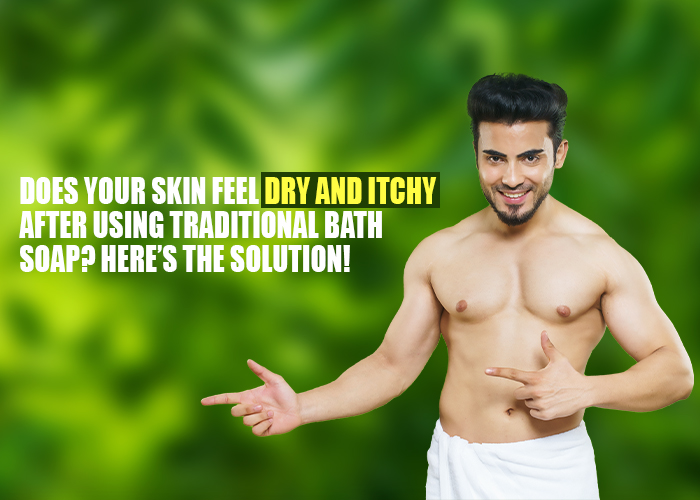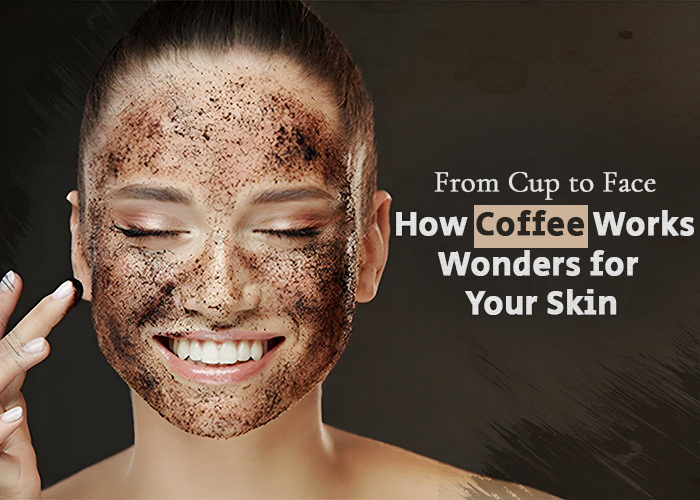Search Products
Trending Products
Best selling products
- Blog
- Why Should Everyone Use Sunscreen Regularly?
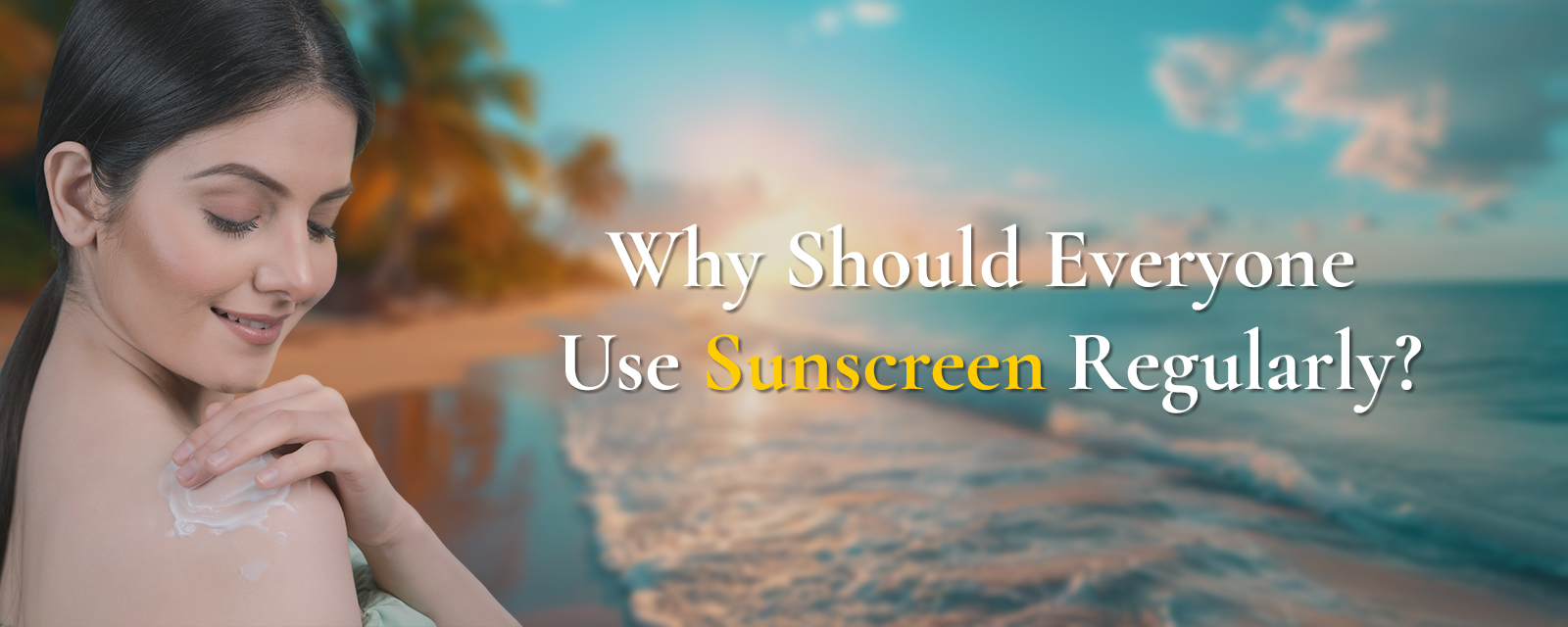
Why Should Everyone Use Sunscreen Regularly?
Sunscreen is one of the most essential yet overlooked aspects of daily skincare. No matter if it's sunny or cloudy, protecting our skin from the sun's harmful rays is always important. UV radiation can still reach your skin even on overcast days, so daily sun protection should be a must! Using sunscreen regularly can safeguard not just our skin's appearance, but also its long-term health. This blog explores the importance of sunscreen, its benefits, potential drawbacks, and how you can use Sunscreen for optimal protection.

Pros and Cons of Using Sunscreen
Pros:- Prevents Sunburn: Sunscreen helps protect the skin from painful sunburns caused by UVB rays.
- Reduces the Risk of Skin Cancer: UV radiation is a leading cause of skin cancer. Regular use of sunscreen can reduce the risk of this life-threatening condition.
- Prevents Premature Aging: Prolonged exposure to the sun's UV rays accelerates skin aging, causing wrinkles, fine lines, and dark spots.
- Evens Skin Tone: Sunscreen can prevent the appearance of uneven skin tone and hyperpigmentation caused by sun exposure.
- Chemical Sensitivities: Some people may experience irritation or allergic reactions to ingredients in certain sunscreens.
- Clogged Pores: Heavy sunscreens can clog pores, potentially causing acne breakouts, especially for those with oily skin.
- Reapplication Is Necessary: Sunscreen needs to be reapplied every two hours or after swimming, making it less convenient for some.
What is SPF?
SPF, or "sun protection factor," measures how well sunscreen protects your skin from sunburn caused by UVB rays. The SPF number shows how much longer it takes for your skin to burn when wearing sunscreen compared to if you weren't wearing any. For example, SPF 30 means it would take 30 times longer to burn.
When it comes to sun protection, the SPF rating of your sunscreen is crucial. SPF 30 effectively blocks about 97% of harmful UV rays, making it a solid choice for everyday use, especially on cloudy days or short outdoor activities. However, if you plan to spend extended time in the sun or have fair skin, SPF 50 is a better option, as it provides slightly enhanced protection by blocking around 98% of UV rays.
However, SPF only covers protection from UVB rays, which cause burning, not UVA rays, which cause skin aging. For complete protection, look for a sunscreen labeled as "broad spectrum" that shields you from both UVA and UVB rays. It's recommended to use a water-resistant, broad spectrum sunscreen with SPF 30 or higher for extended outdoor activities.
What is PA?
The PA (Protection Grade of UVA) system indicates the level of protection a sunscreen offers against UVA rays. The PA rating can be classified as follows:
- PA+: Offers some UVA protection (about 40% or more).
- PA++: Provides moderate UVA protection (about 60% or more).
- PA+++: Offers high UVA protection (about 80% or more).
- PA++++: Provides extremely high UVA protection (about 90% or more).
These ratings help consumers understand how well a sunscreen can protect their skin from the harmful effects of UVA radiation, which can lead to skin aging and other skin issues.
Proper application is key: Apply sunscreen 30 minutes before sun exposure, with a teaspoon amount for your face and two tablespoons for your body. Reapply every two hours or immediately after swimming or sweating.
What are UVA and UVB Rays?
UVA and UVB Rays Ultraviolet (UV) light, invisible to humans, consists of UVA and UVB rays.
- UVA rays are longer, penetrate deeper into the skin, and are linked to skin aging. UVA rays remain consistent throughout the day and year, even passing through windows and clouds.
- UVB rays have shorter wavelengths and mainly cause skin burning. They damage the outer skin layers, and their intensity varies throughout the day and year.
Both types of rays can harm your skin, so using broad-spectrum sunscreen is crucial for effective protection.
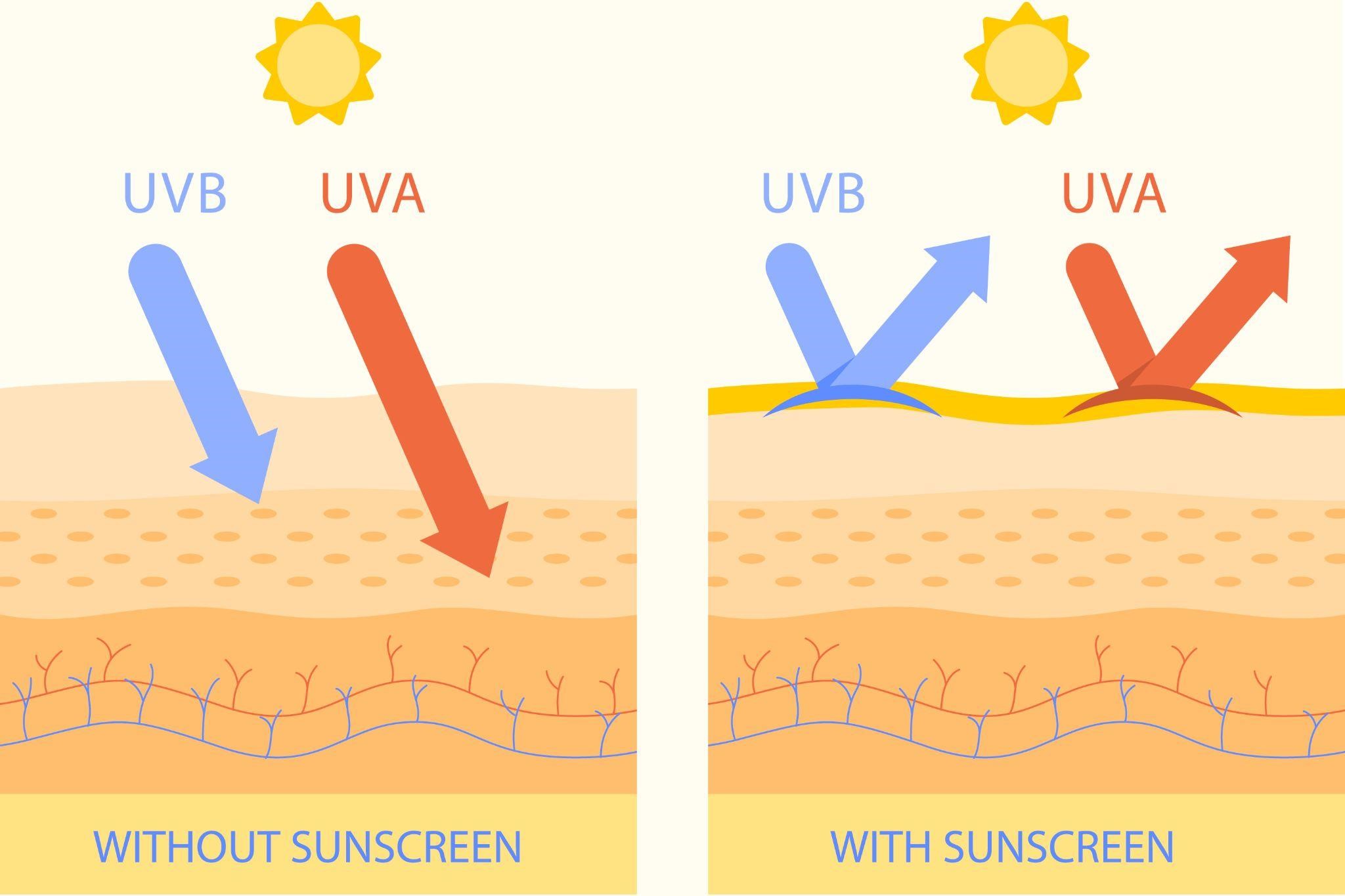
Benefits of Using Sunscreen
- Protection Against Harmful UV Rays: Sunscreen blocks both UVA and UVB rays, preventing immediate damage such as burns and long-term harm like DNA damage to skin cells.
- Slows Down Premature Aging: Regular use of sunscreen helps in maintaining a youthful complexion by minimizing the damaging effects of sun exposure.
- Prevents Skin Cancer: By forming a protective barrier on the skin, sunscreen reduces the risk of developing melanoma, the most severe form of skin cancer.
- Improves Skin Health: Sunscreen protects essential skin proteins like collagen, elastin, and keratin, ensuring healthier, more resilient skin.
- Prevents Sun-Induced Pigmentation: Sunscreen helps in keeping your skin tone even and reduces the chances of pigmentation or dark spots.
Afraid of Sunscreen? How to Protect Acne-Prone Skin Safely
If you have acne-prone skin, the thought of using sunscreen can be intimidating, as many fear it might clog pores or make breakouts worse. However, not using sunscreen can expose your skin to harmful UV rays, which can lead to irritation, scarring, and even dark spots. The key is to choose a non-comedogenic, oil-free sunscreen specially formulated for sensitive or acne-prone skin. Gel-based sunscreens or lightweight formulas are great options that provide protection without the greasy feel or pore-clogging issues.
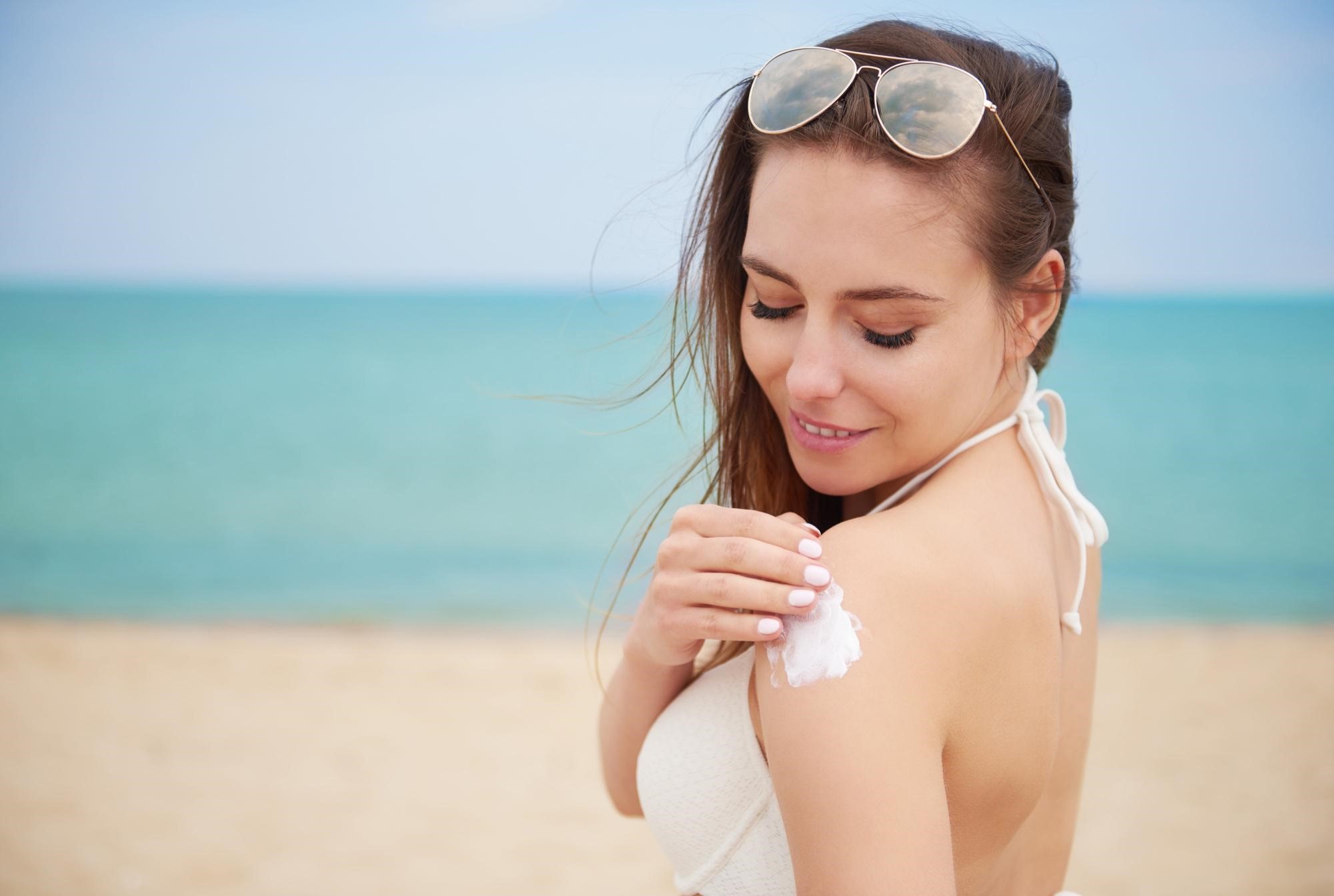
Introducing Nimbarka Hydra Gel Sunscreen SPF 50: Non-Greasy Protection for All, Even Oily and Acne-Prone Skin
Nimbarka's Hydra Gel Sunscreen SPF 50 is a lightweight, skin-friendly solution designed especially for those with sensitive or acne-prone oily skin. This sunscreen provides broad-spectrum protection (PA++++), effectively shielding your skin from up to 98% of harmful UVA and UVB rays while also offering protection against blue light from screens.
The formula is non-greasy and absorbs quickly, leaving no white cast, heavy or sticky feeling. What makes it truly special are its carefully selected natural ingredients:
- Carrot oil to protect and repair,
- Aloe vera extract to soothe and hydrate,
- Roseberry extract to brighten and enhance skin health.
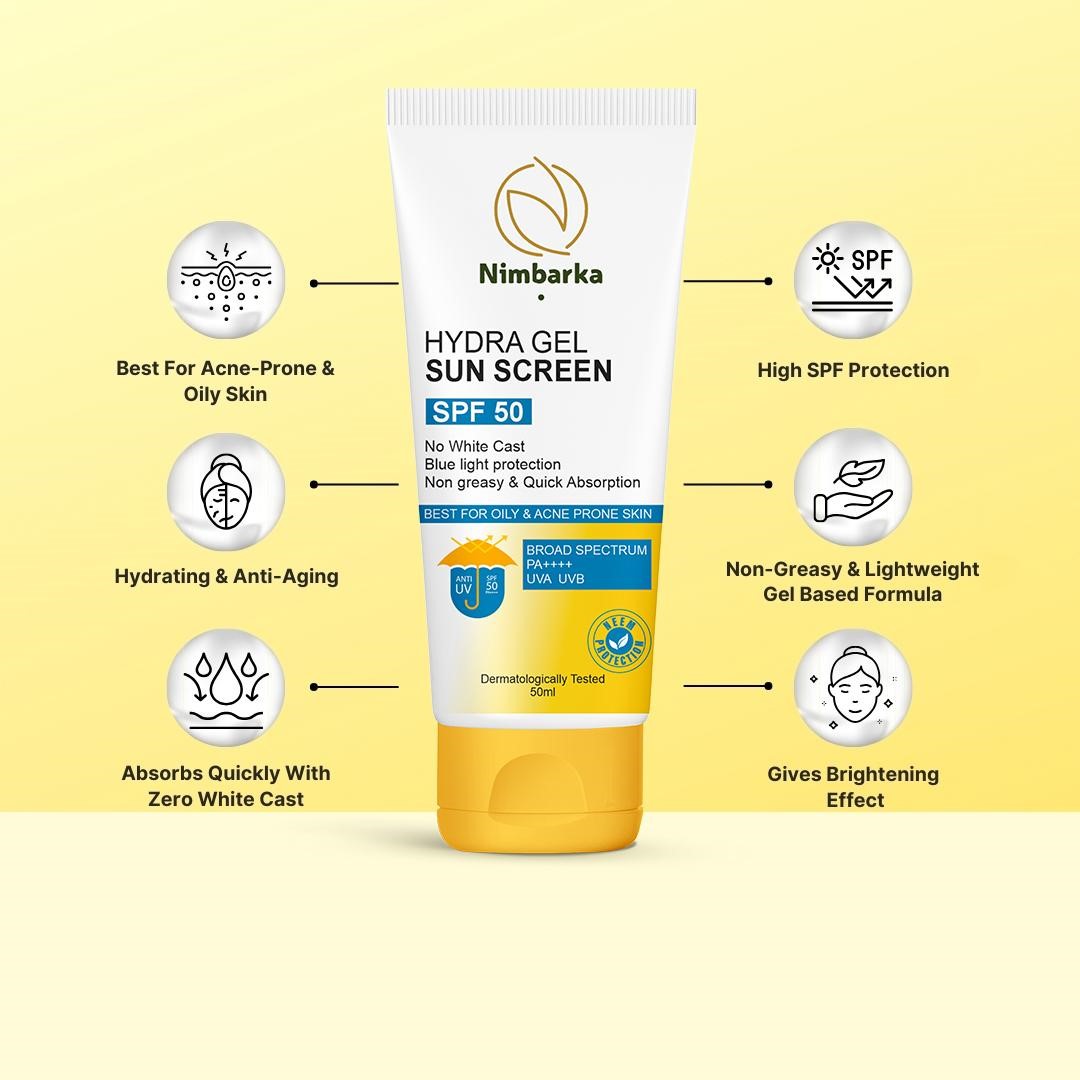
Conclusion
Incorporating sunscreen into your daily skincare routine is not just an option—it's a necessity. From protecting your skin from burns and cancer to preventing premature aging and pigmentation, the benefits are immense. With Nimbarka Hydra Gel Sunscreen SPF 50, you can achieve strong, long-lasting protection without the sticky, heavy feel of traditional sunscreens. So, step up your skincare game today and make sunscreen a daily habit for healthier, glowing skin!




